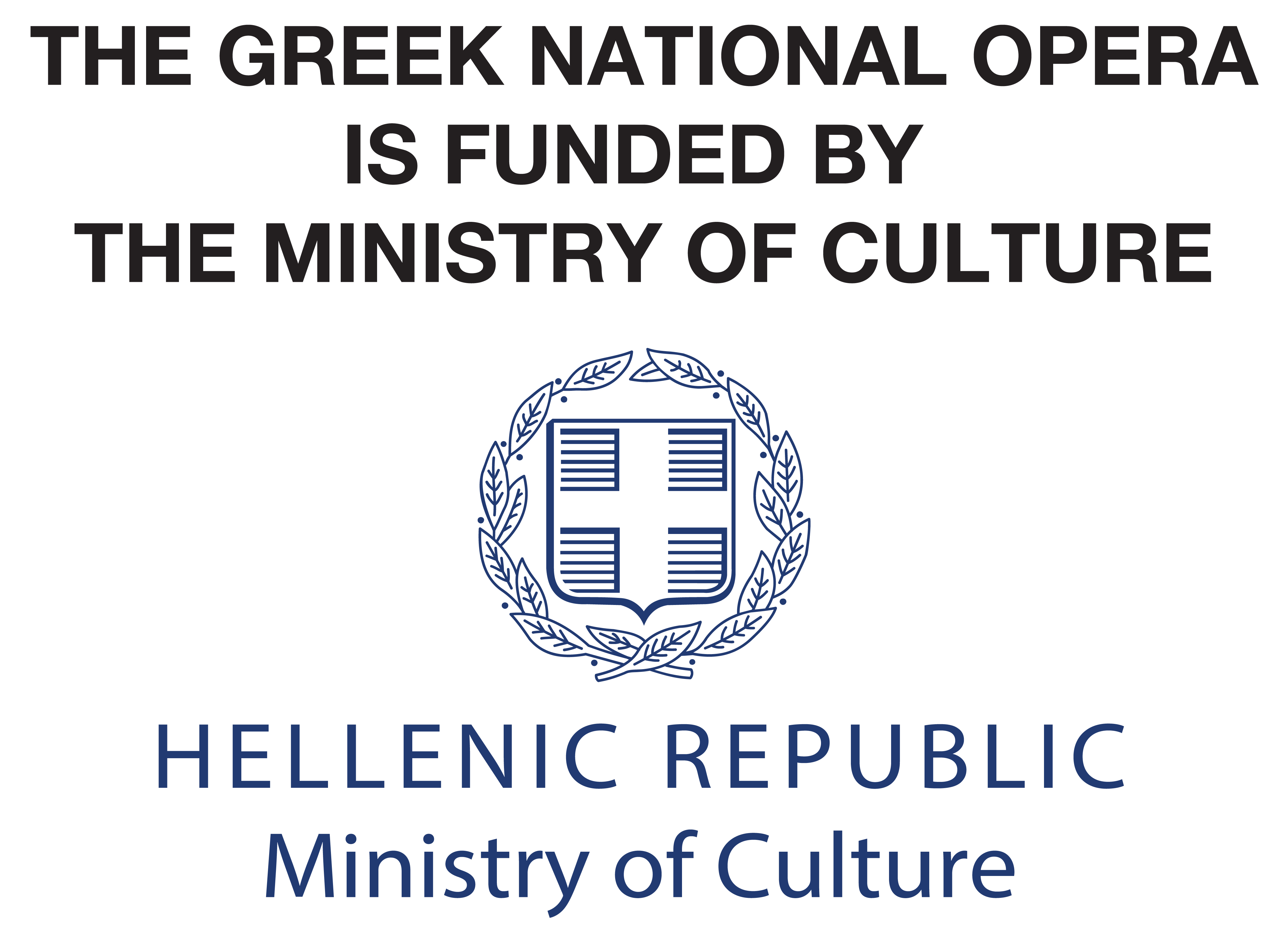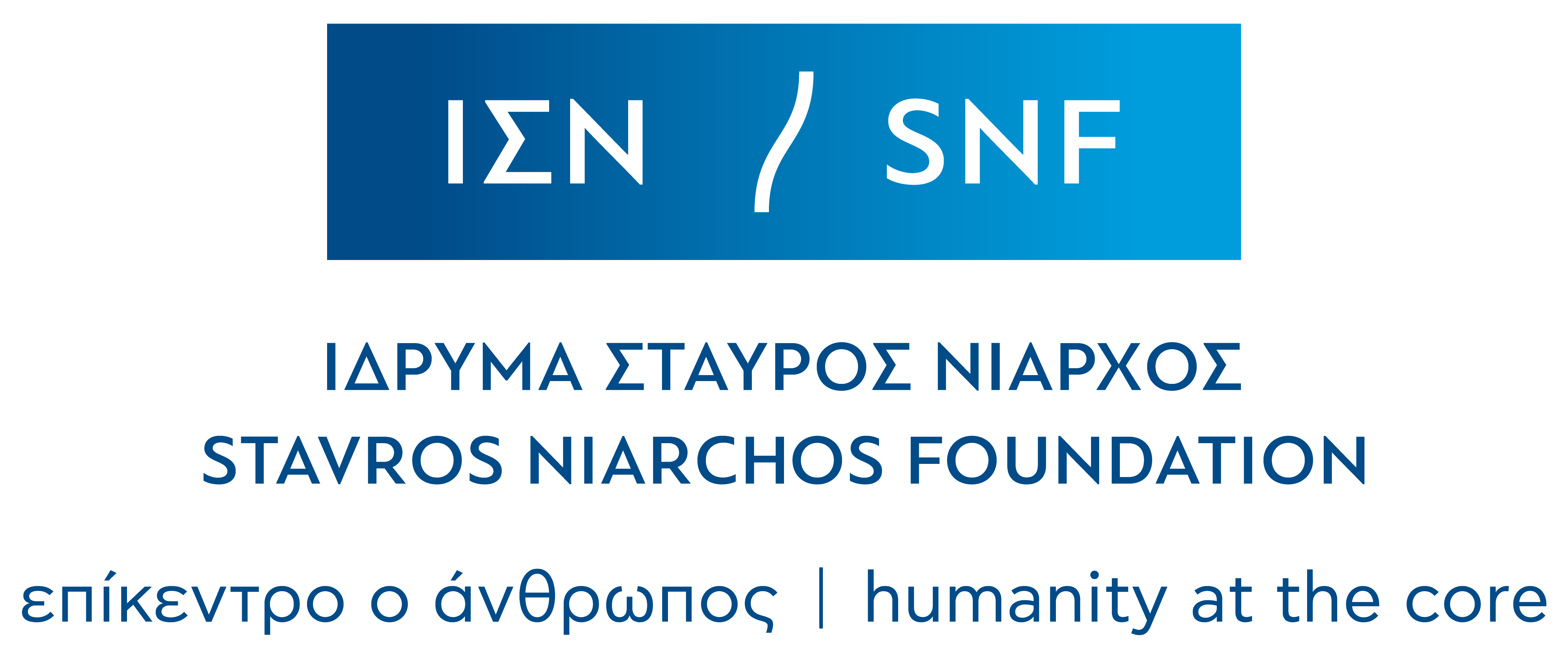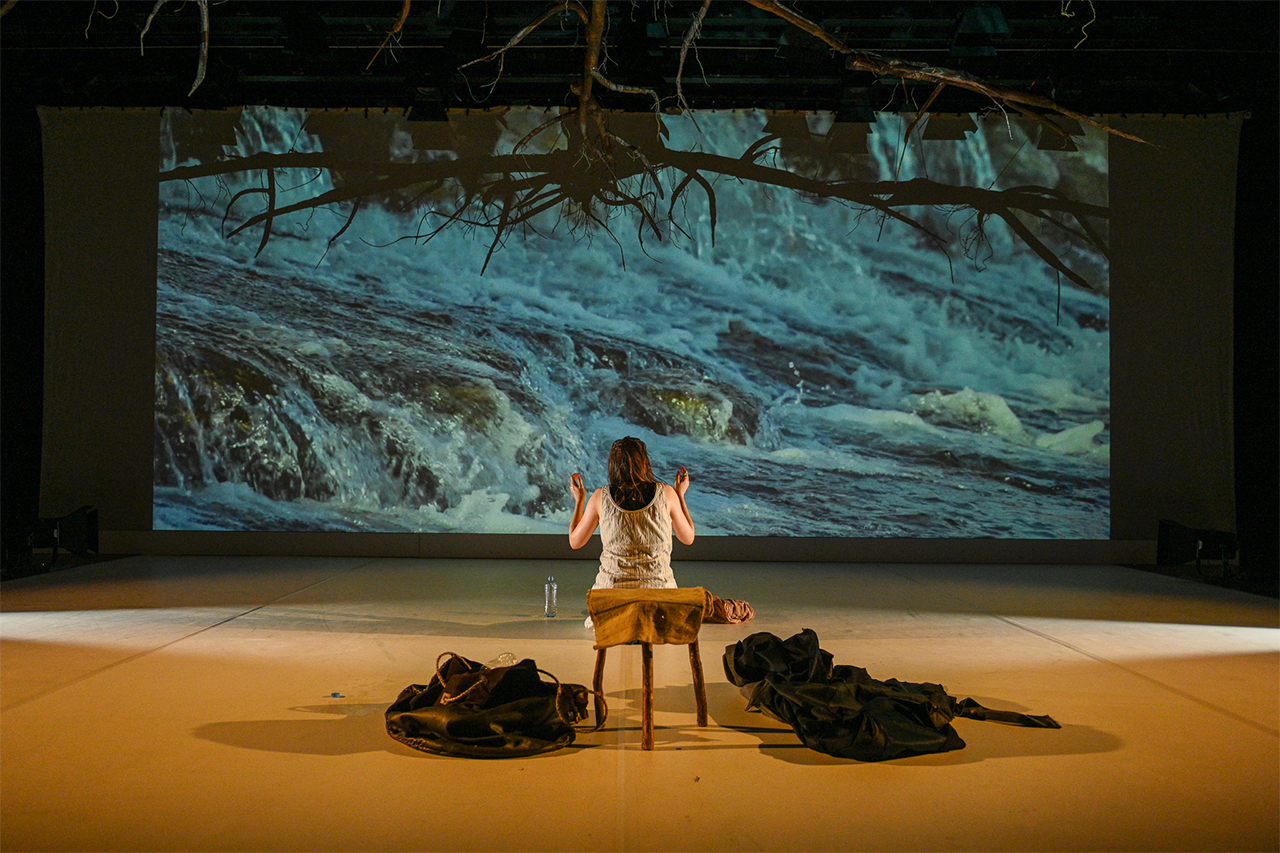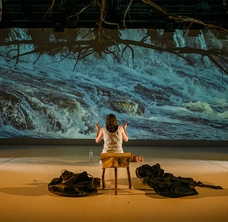
Alternative Stage Founding Donor

Major Sponsor of the Greek National Opera

A co-production with the Deutsch Griechisches Theater Köln
In collaboration with Theater Bonn
Supported by the Cultural Affairs Office of the City of Cologne, the German Embassy, and the Goethe Institute in Athens, under the patronage of the General Secretariat for Greeks Abroad and Public Diplomacy.

The theatre performance The Navel of the Earth by Kostas Papakostopoulos - a piece calling to save the planet, based on the talented German writer Fink Kleidheu's novel of the same name - is coming to the Greek National Opera Alternative Stage at the SNFCC on Friday, the 7th of November 2025. The production is staged by the distinguished director, founder, and Artistic Director of the Deutsch Griechisches Theater in Cologne, Kostas Papakostopoulos, who this year celebrates 35 years of creative work with his theatre ensemble in Cologne. Famous in the German theatre scene for his groundbreaking performances of ancient drama, Papakostopoulos returns to the GNO Alternative Stage five years after his performance Europa, with a multifaceted and topical stage piece composed of speech, video, and music, in co-production with Theater Bonn.
The Mediterranean in summer: heatwaves, wildfires, drought, floods! Climate change appears to be altering our planet once and for all. Can we still change its course, or must we accept the inevitable? Seeking answers, director Kostas Papakostopoulos, along with the Deutsch Griechisches Theater, turns, much like the ancient Greeks, to the Delphi Oracle, the navel of the world, and the mythical Pythia. This performance challenges the values of contemporary civilisation and serves as a call to save our planet.
Onstage appears the mythical Pythia, embodied by the distinguished German actress Lisa Sophie Kusz, who was nominated for this role for the Cologne Best Actress Award 2024. She portrays a climate refugee who illegally leaves the Mediterranean for Iceland. On her way there, she makes a stop in Germany, where she finds temporary shelter on a theatre stage. There, in an unexpected encounter with the audience, she speaks about the deeply alarming state of �Mother Earth,� while confessing her desire to change this traditionally male-dominated world. Her words are an onstage cry of agony over the increasingly escalating ecological destruction and other pressing issues. In the finale, fulfilling her ancient duty, she gazes into the future. She seems to have a plan...
Fink Kleidheu gives the mythical Pythia a modern voice, telling his thoughts from the perspective of a woman who has seen everything in advance. The production features original music by Greek composer and performer Tasos Stamou, while German filmmaker John Seidler's stunning videos transform the stage into a �landscape� of environmental destruction, where the mythical heroine moves.
To create this performance, which premiered in June 2024 at the Bonn State Theatre and received excellent reviews from the German press, the director and the cameraman of the Deutsch Griechisches Theater traveled to the burnt-down forest of Dadia in Evros, which experienced the largest wildfire in Europe during the summer of 2023. �In February 2024, I travelled with filmmaker John Seidler to the burnt-down forest of Dadia. Out of a total area of 200,000 hectares, with its unique flora and fauna, nearly 100,000 hectares were turned to ashes in 2023. It was the largest wildfire recorded in Europe up to that point. In collaboration with WWF Greece, I gathered video and audio material from the disaster in this unique region, while I also had the chance to talk with some of its inhabitants about their tragic experiences and the devastating repercussions on their lives. These revealing images were then complemented by composer Tasos Stamou's mystical, chthonic sounds. Thus, through this process, The Navel of the Earth was born: a stage piece composed of speech, video, and music,� notes Kostas Papakostopoulos.
The performances of the production The Navel of the Earth are supported by the Cultural Affairs Office of the City of Cologne, the German Embassy, and the Goethe Institute in Athens, under the patronage of the General Secretariat for Greeks Abroad and Public Diplomacy.
Brief biographical notes
Kostas Papakostopoulos
Stage director, founder and artistic director of the Deutsch Griechisches Theater (Greek-German Theatre), which is celebrating 35 years of creativity in Germany this year. Born in Athens, he studied theatre at the University of Cologne and collaborated with Dimiter Gotscheff at the Cologne State Theatre and Frank Castorf at the iconic Volksbühne in Berlin. He quickly became known in Germany for his innovative productions of ancient Greek drama. The director is interested in the timeless social and political themes inherent in ancient drama and highlights their topical nature by transferring them to today's reality. To date, he has presented works by classical and modern Greek authors, as well as Europeans inspired by ancient Greek mythology and his own works. Having directed 40 plays in co-production with State Theatres and independent theatre companies, he has established himself throughout Germany. He has received numerous awards and represented Cologne in major European cities such as Barcelona, Turin, Thessaloniki, Brussels, Vienna and Athens.
Tasos Stamou
Composer of contemporary electroacoustic music and a performer of free musical improvisation. Moving to the United Kingdom over a decade ago shaped his music, influencing both the assimilation of new avant-garde trends and the exploration of an idealised Greek identity through nostalgia. In recent years, his work has increasingly fused these two trends, particularly in his trilogy of electroacoustic music influenced by Greek musical tradition (Musique Con Crète, D.A.D., Antiqua Graecia). His live performances and discography are characterised by a combination of contemporary electronic media and archaic elements in improvised, ritualistic music. He has performed this work live over 300 times, and his recordings have been released by various international independent record labels, including Discrepant, Ikuisuus, Moving-Furniture Records and Coherent States.
Zezo Dinekov
�orn in Varna, Bulgaria. From 1978 to 1982, he studied painting and set design at the Academy of Fine Arts in Sofia. He then spent many years working as a set and costume designer for the director Dimiter Gotschev at the Schauspiel Köln and Theater Düsseldorf. His work on the production of Chekhov Carousel at the Düsseldorf Theatre was nominated for the Best Set Design Award in Germany. This was followed by a career as a visual artist, with numerous solo and group exhibitions in Germany, and as a set designer, with over 60 sets created for various theatres and stages across Europe. Since 1997, he has collaborated continuously with director Kostas Papakostopoulos.
John Seidler
He was born in Cologne. He studied Media Studies at the University of Cologne. In 2014, he was awarded a doctorate by the University of Rostock. He currently teaches at the DSHS Institute of Communication and Media Research in Cologne. As a documentary filmmaker, he focuses on social and cultural issues, presenting them with great sensitivity and a vivid visual style. His films have been screened at numerous international festivals and won multiple awards, including Peloponnese International Documentary Festival, German Documentary Awards and Seattle Film Festival. Since 2018, he has had a decisive influence on the audiovisual aesthetics of the Deutsch Griechisches Theater (Greek-German Theatre) in Cologne through his atmospheric video installations, which combine documentary form with magical realism.
Lisa Sophie Kusz
She was born in Nuremberg. She studied acting at the Theater der Keller Acting School in Cologne. She has performed at numerous venues, including the Bauturm Theater, TAS Neuss, Theater der Keller, Theater Oberhausen, Nuremberg State Theater and Theater Trier. Since 2009, she has been a member of the Cologne Deutsch Griechisches Theater (Greek-German Theatre) troupe. With the DGT, she has performed in Greece at theatres in Thessaloniki and Athens. She has also appeared in the television series Tatort. She also works as a speaker for WDR radio and television. She has been nominated for the 2024 Best Actress Award in Cologne for her performance in The Navel of the Earth.











